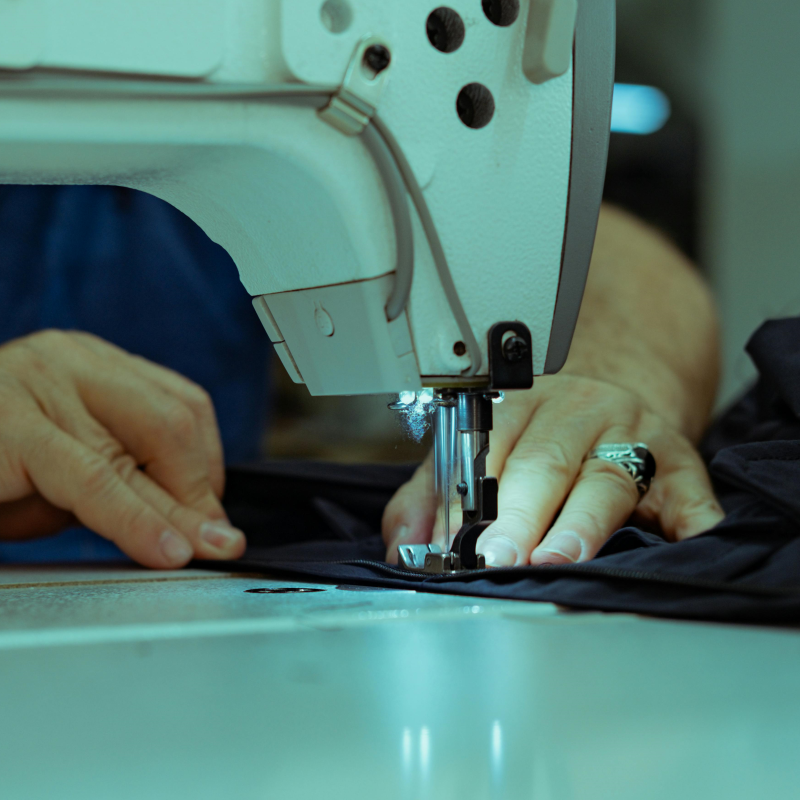
How is the Use of Animal-Derived Materials Prevented in Textiles?
The vegan production approach in the textile industry is not limited to using only plant-based or synthetic materials. It also requires that no animal-origin components, by-products, or additives be used throughout the entire supply chain. Common animal-derived materials include wool, silk, leather, fur, as well as dyes, adhesives, and finishes containing animal fats. Completely avoiding these in textile products demands rigorous content inspection and supply control.
Producers should carefully verify the origin of components used especially in chemical dyes and auxiliary products, and request documents such as content declarations and Material Safety Data Sheets (MSDS) for every product received from suppliers. These documents are vital to prove that the raw materials used comply with vegan standards. Additionally, developing animal-free alternatives is a sustainable innovation area for R&D departments.
Common Animal-Derived Materials and Vegan Alternatives
- Leather: Synthetic leather based on polyurethane or mushrooms
- Silk: Ahimsa (non-lethal) silk or plant fibers
- Wool: Organic cotton, bamboo fiber
- Adhesive: Synthetic resins or plant-based glues
Traceability Requirement in the Production Chain
For vegan textile products to be truly considered animal-friendly, not only the raw materials but the entire production chain must be traceable. Traceability means recording all intermediate production and processing stages starting from the raw material source. These records make it possible to monitor every stage from the initial fiber to the labeled final product. Thus, both producers and consumers gain transparent information about how the product was made.
When establishing a traceability system, digital or manual data records should be kept at each stage, and batch numbers and production lots must be standardized. Especially, detailed content information, certification documents, and source data of products from external suppliers must be fully collected. This approach offers serious advantages not only for vegan compliance but also for sustainability, environmental responsibility, and quality control.
Traceability Stages
- Collecting raw material source documents
- Recording intermediate production stages
- Tracking product movements by lot and date
- Establishing a system for retrospective queries
Evaluation of Dyes and Auxiliary Materials
To carry the vegan label on textile products, dyes used and all auxiliary chemicals involved in production must contain no animal-derived ingredients. Traditional textile dyes, especially some pigments, may contain animal-origin components. For example, red pigments like carmine are usually derived from insects, and some oil-based solvents may contain animal fat derivatives. Therefore, detailed dye and chemical analyses are critical in the vegan textile certification process.
This evaluation includes not only the dye raw materials but also auxiliaries, stabilizers, carriers, and dryers used during dyeing. Manufacturers must request documents like MSDS and content declarations from suppliers to certify that these materials are vegan certified and should perform laboratory tests if necessary.
Selecting Vegan-Compatible Dyes
- Plant-based or synthetic pigments should be preferred.
- The dye manufacturer must provide a written statement confirming absence of animal-derived contents.
- Animal-sourced additives must be excluded (e.g., beeswax, lanolin).
- Chemical component analysis results should be archived.
Certification of Animal-Friendly Production Processes
A vegan textile certificate covers not only the absence of animal-derived content but also documents that no harm is caused to animals during any production stage. Thus, the production process should be organized within a framework prioritizing ethical values. The animal-friendly production concept applies not only to product content but also to testing procedures and ancillary services. For example, animal testing during product trials is strictly prohibited.
Manufacturers must provide production records, supply source documents, declarations proving no animal testing, and employee training certificates during audit processes to document this ethical approach. These documents ensure transparency and increase reliability. Certification bodies like KIOSCERT act as verifiers; the fundamental basis is the ethical stance of the business.
Required Documents in the Certification Process
- Declaration of no animal-derived content
- Production process flowchart
- MSDS and ingredient lists
- Ethical declaration of no animal testing
Visibility of Ethical Fashion Brands
Today, consumers value not only aesthetics and quality but also the ethical stance of brands. Especially in the fashion industry, brands adopting ethical production can concretize their commitment through certifications such as vegan textile certificates. This certificate provides the brand not only legal assurance but also a significant advantage in marketing and communication. Customers increase their loyalty when they know their products were produced without harming animals.
Ethical brands emphasize responsibility at every stage of the supply chain by providing transparent content information. They strengthen their connection with consumers by using certification logos on websites, product labels, and campaigns. Interactions on social media clearly show that certified ethical production positively contributes to brand image. This visibility is an effective way to build trust among individual consumers and corporate buyers alike.
Ethical Visibility Strategies
- Using the vegan certificate logo on product labels
- Publishing content declarations on the website
- Announcing certification ownership through social media campaigns
- Highlighting ethical production in brand storytelling
Transparent Vegan Textile Process with KIOSCERT
For vegan textile products to be certified as truly ethical and animal-friendly, the certification process itself must be transparent and compliant with standards. Independent auditing and thorough documentation processes guarantee this. KIOSCERT not only requests necessary documents but also conducts on-site inspections to verify compliance with vegan criteria throughout production.
During certification, traceability of the supply chain, animal-content declarations, dye and auxiliary chemical ingredients, testing procedures, and ethical production approaches are examined in detail. The manufacturer fulfills its responsibility by providing transparent data at every stage to the certification authority. Digital records, certificate histories, and compliance reports are systematically evaluated. Certified businesses earn the right to represent themselves as ethical textile producers in both national and international markets.
